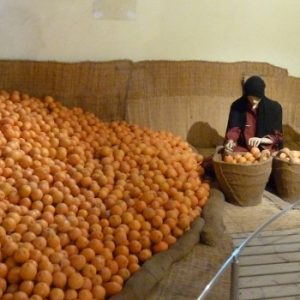The European Union has established new rules regarding the policies for labeling consumer goods from Jewish-owned businesses. The policies will affect areas of land that were captured by Israel in the war of 1967, and they will certainly cause a strain on relations between Israel and Europe.
The move has been downplayed by European officials, who have stated that they were simply clarifying existing rules. However officials from Israel have said that it was discriminatory and designed to fuel an international movement to boycott their country.
In years past, Israel has lobbied hard against such labeling requirements. However, it hasn’t been enough to sway the European Union, in which many of the countries formally recognize the existence of a Palestinian state.
The European Union is the top trading partner for Israel. Last year, an estimated total of $32 billion in commerce was conducted between Israel and the EU. Unofficial estimates show that less than 1% of imported goods in the EU are derived from Israel.
The new labeling guidelines will only be mandatory for certain goods, mostly agricultural goods. In essence, these rules are largely just symbolic, but they are still strongly viewed as negative by the people of Israel.
A spokesperson for the European Commission said, “This in no way changes our stance with respect to the Middle East peace process. This in no way affects the agreement we have with Israel with respect to preferential treatment for their products sold in the European Union. All ‘Made in Israel’ products will continue to come into the European Union with very low, or no, tariffs. What will also not change is that products coming from the settlements cannot benefit from those preferences.”
Additionally, the spokesperson stated that the EU was catering to the opinions of individual countries. Great Britain, Denmark and Belgium have each individually been discussing putting their own labels on such goods.
Spokesperson for the Israeli Foreign Ministry Emmanuel Nahshon condemned the move saying, “It was an exceptional and discriminatory step, especially when Israel is confronting a wave of terrorism targeting any and all of its citizens.”
Upon hearing the news, Israel requested the EU ambassador to Israel Lars Faaborg-Andersen for a conference at the Foreign Ministry in Jerusalem.
Nahshon went on to say, “It is puzzling and even irritating that the EU chooses to apply a double standard concerning Israel, while ignoring that there are over 200 other territorial disputes worldwide, including those occurring within the EU or on its doorstep. The claim that this is a technical matter is cynical and baseless.”
According to the new guidelines, the term “product of Israel” will not need to be placed on goods by businesses of the West Bank. Goods that are derived from the Golan Heights and in East Jerusalem will also be exempt.
The new rules for labeling will be mandatory for fresh fruit and vegetables, wine honey, olive oil, eggs, poultry, organic products and cosmetics. For packaged foods and industrial products, the labeling will only be voluntary.
So while Israel is not happy about being singled out, the EU intends to move full steam ahead with the move. How this will impact the relations between Israel and the EU will certainly be seen in the near future.
Stay Connected